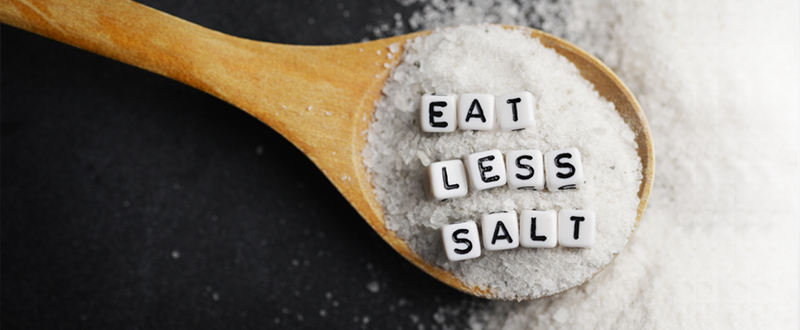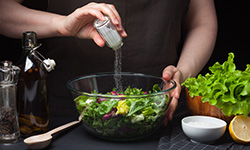Compliance to Hypertension Treatment and Impact of Salt in BP Management by Dr. P Manokar

To keep the blood pressure under control, it is essential to follow the treatment plan and take the medications on time. Missing even a single dose of the medications can hamper the drug’s efficacy and prove to be counter-effective, i.e., as good as not taking any medicines at all.
Hypertension medications are as important as brushing teeth or taking a bath. Owing to their hectic lifestyle and a tight schedule, many people tend to forget to take their medications.
Dr. P Manokar advises that following the treatment plan and taking medications regularly is far more critical than the choice of drugs itself. He believes that antihypertensive drugs work efficiently only when complied with the treatment plan—a fixed-dose combination or taking the medications once a day is recommended and suggested.
Impact Of Salt In Hypertension Management

Clinically, there are two types of salt:
- Sodium chloride: table salt used in cooking food
- Sodium bicarbonate: found in sodas and preservatives
Sodium bicarbonate, used to preserve food, has a higher chance of increasing blood pressure than the table salt added to food. Aerated drinks and sodas contain an increased amount of salt in sodium bicarbonate, which is harmful to the heart and has a significant impact on blood pressure.
Food items such as pizza, cakes, bread, and biscuits that need to be preserved for a long time contain a higher salt content or preservatives. Salt is added to these food items to increase their shelf life.
Doctors and healthcare professionals advise reducing table salt intake and any other type of salt in food items that are not prepared at home. Any non-homemade food item has preservatives and contains salt or sodium.
For example, a 50 gm bottle of pickle may contain a maximum of 5 grams of salt. On the other hand, a medium-size pizza may have up to 8 grams of salt. A person may not be able to consume 50 grams of pickle in one go but can eat the whole medium-size pizza!
Conclusion
Any food item that is made to preserve for a longer time contains a higher amount of salt. Along with reducing salt intake, hypertension patients must regularly take medications and follow their treatment plan.
Note of caution: This article is for information purpose only. Always consult your doctor before altering any diet plans, medications or in case of any other blood pressure-related troubles.
Disclaimer
The information contained in this article/s is to educate / spread awareness in relation to hypertension and other diseases to the public at large. The contents of this article/s are created and developed by BPinControl.in (“The Website”) through its authors, which has necessary, authorisations, license, approvals, permits etc to allow usage of this articles on The Website. The views and opinions expressed in this article are views, opinions of the respective authors and are independently endorsed by doctors. Although great care has been taken in compiling and checking the information in this article/s, The Website shall not be responsible, or in any way liable for any errors, omissions or inaccuracies in this article/s whether arising from negligence or otherwise, or for any consequences arising therefrom. The content of this article is not a substitute for any medical advice. The Website shall not be held responsible or liable for any consequence arising out of reliance on the information provided in the article.

 Increasing physical activities and staying fit.
Increasing physical activities and staying fit. Consuming a healthy diet containing fruits, vegetables, whole grains, and low-fat dairy items.
Consuming a healthy diet containing fruits, vegetables, whole grains, and low-fat dairy items. Limiting the intake of salt.
Limiting the intake of salt. Reducing alcohol consumption and quitting smoking.
Reducing alcohol consumption and quitting smoking. Maintaining a healthy weight.
Maintaining a healthy weight. Managing stress by practising coping techniques such as meditation, deep breathing, and muscle relaxation.
Managing stress by practising coping techniques such as meditation, deep breathing, and muscle relaxation.
Comments (0)
No comments found.Add your comment